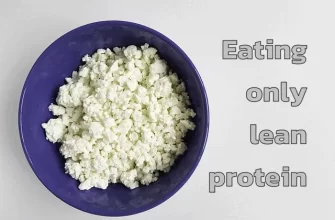Everyone’s talking about protein these days, with gym-goers and fitness enthusiasts particularly interested in this critical macronutrient essential for muscle-building and physical repair. But are we harnessing the potential of all possible protein sources? Today, let’s focus our attention on legumes.
What Are Legumes?
Legumes, a family of plants categorized by their seed pods, include beans, lentils, peas, and peanuts, among others. They are often overlooked as a protein source but are they an unsung hero in this department?
| Nutrient | Amount per Serving |
|---|---|
| Calories | 180 |
| Protein | 10g |
| Fat | 0.5g |
| Carbohydrates | 32g |
| Fiber | 8g |
| Sugar | 1g |
| Sodium | 10mg |
| Potassium | 400mg |
| Iron | 2.5mg |
| Calcium | 40mg |
| Vitamin C | 2mg |
| Vitamin A | 0 IU |
| Vitamin E | 1mg |
| Vitamin K | 5mcg |
| Folate | 300mcg |
| Magnesium | 50mg |
Power-Packed Legumes
In simple terms, yes, legumes are a great source of protein. They’re packed with amino acids, the building blocks of protein that your body needs for proper functioning.
For example, a cup of cooked lentils provides about 18 grams of proteins. Chickpeas, another popular legume, offer around 15 grams per cooked cup.
Table 1: Protein Content of Some Popular Legumes (per cooked cup)
| Legume | Protein (grams) |
|---|---|
| Lentils | 18 |
| Chickpeas | 15 |
| Black beans | 15 |
| Kidney beans | 13 |
Of course, legumes vary in protein content, but the key point here is they are an impressively high source of protein relative to their caloric content.
The Legumes Advantage
Beyond their protein prowess, legumes also possess a wide array of other health benefits. They’re rich in fiber, which is beneficial for digestive health. Additionally, legumes are fantastic sources of complex carbohydrates providing sustained energy and also help in blood sugar regulation.
Legumes are laden with essential nutrients like iron, magnesium, potassium, and folate that contribute significantly to overall health. Furthermore, being low in fat and cholesterol-free, legumes make an excellent addition to heart-healthy and weight control diets.
Legumes vs. Animal Protein
While it’s true that legumes aren’t as protein-dense as some animal-based sources, they come without the saturated fats and cholesterol associated with meat and dairy.
Legumes also offer more dietary fiber and certain vitamins and minerals that tend to be lower in animal-based diets. This advantage makes them not just a cost-effective but also a nutritional powerhouse, making it a beloved choice for vegetarians and vegans.
To Conclude
Although legumes may not entirely replace animal proteins for everyone, they certainly are a ‘protein hero’ worth including in any diet plan, irrespective of dietary preferences. So, the next time you’re devising a meal plan or simply wondering about good protein sources, spare a thought for the humble yet mighty legume.









